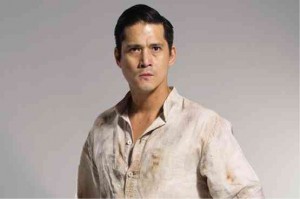More questions than answers
“Bonifacio: Ang Unang Pangulo” was one of the most substantial and significant entries in the Metro Manila Film Festival, because it “dares” to make viewers think—or, more properly, to re-think what they know and feel about the Great Plebeian, Andres Bonifacio, and his stature and import in the nation’s pantheon of heroes.
It’s also quite amazing that the hero is portrayed by the iconic “bad boy” of Philippine cinema, Robin Padilla—an unexpected case of a notorious screen hooligan turning heroic now that he’s a mature performer. Mainly for these two key reasons, we caught “Bonifacio” early in the festival’s run, to express our appreciation and support.
Well, what’s the verdict—on point of achieved intention? We’re still glad we saw Enzo Williams’ historical drama, but we have to observe that, when push comes to shove, it raises more questions than it answers.
Its most controversial contention is that, as its title declares, Bonifacio was the new Filipino nation’s first president—not Emilio Aguinaldo, who finessed the premier post away from him by way of a rigged election. However, the “evidence” that the production marshalled up to prove this history-altering contention was less than definitive—and fully persuasive.
Evidence
Yes, Bonifacio was the Supremo of the Katipunan, which Aguinaldo is first shown joining as a mere member—but, where’s the electoral evidence of fraud? In addition, the Katipunan’s early military successes were followed by a string of failures, which could have eroded the heroic hubris of his leadership, enabling other provinces, like Aguinaldo’s Cavite, to steal the thunder away from him—and challenge his originally unquestioned Supremo-hood.
Article continues after this advertisementIf even historians are split as to what really transpired during those halcyonic times, surely the production that “dares” to side with President Bonifacio should have done a better job to convince the undecided?
On the plus side, the film impresses with some of its period visualizations and characterizations, which are more convincing than some ramshackle TV-film productions set in the same period. And Robin’s characterization is not as characteristically stiff and self-consciously “heroic” as expected—a pleasant and welcome surprise!
